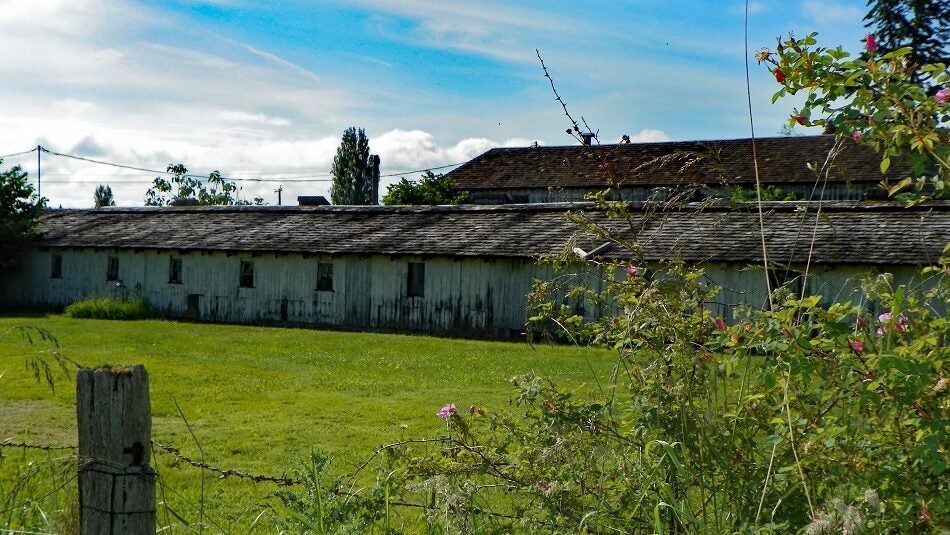
Emergency vouchers meet needs in rural Eastern Washington

In 2015, the worst wildfires in Washington State history decimated housing in rural Okanogan, Ferry and Stevens Counties. The fires burned hundreds of thousands of acres and destroyed more than 300 homes, nearly a third of which were uninsured.
Catholic Charities Eastern Washington (CCEW) responded swiftly. Our trucks arrived with blankets, towels, food and water to address the fire victims’ immediate needs, and through the Catholic Charities USA (CCUSA) disaster funding mechanism we provided immediate financial assistance.
Our disaster response also became a lasting commitment, thanks to our existing emergency assistance voucher system. Our disaster case manager arrived in the community with a stack of vouchers —a promise of payment to help replace what had been lost. Leveraging existing partners, funds and processes, we scaled up our voucher system to assist scores of people in rebuilding their lives.
CCEW also uses the vouchers to serve our substantially rural service area. In small Eastern Washington towns of 1,000–5,000 people, residents can count on two institutions: a parish and a community food bank. But if residents need gas to get to Spokane for medical care, to keep their electricity connected, or to fill a new prescription that’s unaffordable, local resources are scarce.
During a series of listening sessions held around the Diocese of Spokane from 2000–2001, small parishes told CCEW they needed help addressing their neighbors’ financial challenges. In response, CCEW expanded our small emergency assistance voucher program to offer rural communities a flexible tool for assisting their neighbors financially.
The voucher system is straightforward. CCEW provides funds for emergency services. A local church or agency provides relationships with local businesses and utilities. When a resident comes with a need, the church or agency writes a voucher, and the business, knowing CCEW is good for the money, provides the service. CCEW reimburses. Cash is never put into the client’s hands; CCEW pays the vendors directly.
Emergency vouchers are tailored to local needs
If communities demonstrate a need, CCEW introduces our voucher program and adapts the tool to work locally. Sometimes the pastor and parish secretary serve as our voucher writers. In other cases, the local food bank or community action agency is a better fit. We partner with St. Vincent de Paul conferences. In one small town, the best partners are pastors of two Protestant congregations. In each case, we seek approval from the parish pastor — after all, we’re using funds raised in Catholic parishes. It only makes sense to have them on board when we dispense those monies.
The costs to run the program are limited to occasional printing of vouchers, postage, fiscal and accounting, and, primarily, the money budgeted each year to back up the vouchers. Pastors in rural community parishes sing the praises of having a flexible tool at their disposal. Because the emergency funds are unrestricted, they can be used for any basic need that cannot easily be met by other means, as long as the vendor will accept our voucher. I’m known for saying, “I like the weird ones,” meaning the unusual cases that don’t fall into typical categories. Help replacing a well pump that supplies a household’s water? Done that. Steel-toed work boots so a young man can start a new job? Done that, too.
Managing and reporting the voucher system
We ask voucher writers to work with local vendors (e.g., the grocery store, the gas station, etc.) to make sure the process runs smoothly. That small business owner needs to be confident that we will pay them in a timely way. But think for a moment about the power of being able to say, “yes, we can help you,” when someone knocks on the parish door. The secretary can pull a Catholic Charities voucher from a drawer and send that person out with an actual resource to meet the need for gas, food or utility services.
Every quarter, we send a report to all voucher writers and pastors to let them know how much of the annual budget has been spent, in which communities, on what goods and services, and for how many beneficiaries.
Crucially, our agency budgets for this annually, providing a predictable and stable resource. In Eastern Washington, vouchers remain a tool to serve those in need and to build relationships with rural communities.
If you are interested in developing your own emergency voucher system, check out CCEW’s toolkit with resources for getting started.








